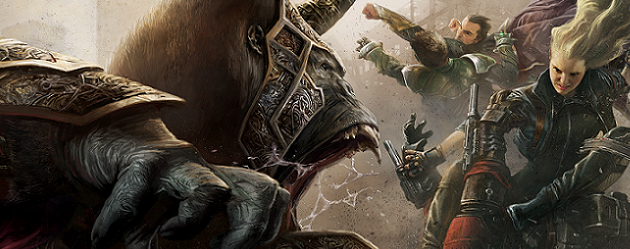Nobody could stop Jim Carrey’s career back in the 90s, and The Mask was sssssmokin’ at the box-office. There’s been plenty of other super successful comic book blockbusters before and after The Mask, but I can’t think of many that were as original as The Mask.
Perhaps what makes The Mask stand out from its comic book contemporaries is its simple yet effective concept. Superhero stories are about your not-so-average Joe/Jane who gives up their ego (a.k.a. the consciousness between self-control and self-gratification) and takes on their superego (a.k.a. the idealistic part of the conscious) by putting on their cape. The Mask is about a nice guy who gives up his ego and takes on his id (a.k.a. the primal conscious that seeks self-gratification) by putting on a mask.
If anything, The Mask taps into our fantasies even more than the superhero genre. Sure, saving the world and looking cool while doing it is probably a big fantasy on most people’s minds. But I’m sure that doing and saying what’s really on your mind is even more tempting of a fantasy. Haven’t we all wanted to be the scene at the party, tell that bossy New Yorker to go cram it, and refund a boot up the ass of that stiff store manager? The Mask is the talisman that makes all of those wishes come true.
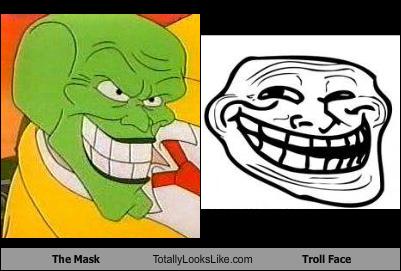
Of course, you can’t have a great story without some kind of conflict, and with The Mask, there’s a big downside to wearing such a thing. There’s a reason why we don’t simply act on our impulses, and just like in real life, there’s big consequences to doing so in The Mask.
In the subsequent versions, however, the dangerous side to using The Mask is significantly watered down. With The Mask: The Animated Series, The Mask moves closer to being a superhero, which is understandable, since it’s a children’s cartoon show. Nevertheless, Jim Carrey’s antics are retained, The Mask is still a troll, and the humor is still spot on. With Son of the Mask…it’s a completely different story. Son of the Mask completely neuters the story. Gone are the consequences of wearing The Mask, the neon-noir, the edgy and trollish humor, and everything else that made the franchise so fresh and entertaining. Instead of The Mask, you get a annoying superhero wearing green paint and a plastic wig, who’s stuck in a raunchy, family friendly comedy.
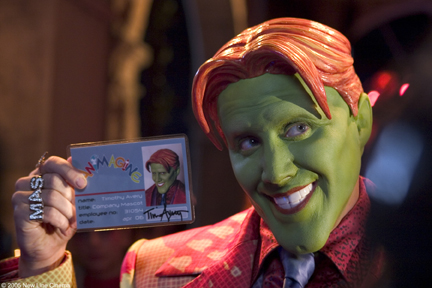
On the flip side, The Mask comic book series is much darker than the film adaptation. That’s usually a given for most comic book adaptations, but The Mask was especially biting and violent compared to its film version. This is one of those cases where toning the film version down was a smart move, since I doubt audiences would enjoy seeing Jim Carrey slap Cameron Diaz around, or The Mask kill cops left and right. Of course, that seemed to be the comic book movie trend of the 90s. Take a great comic book series and make an excellent film adaptation that tones down the darkness.
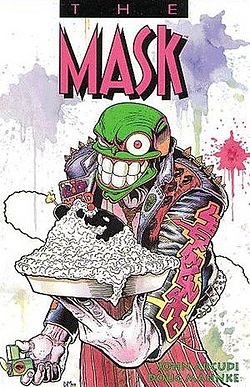
Speaking of which, what happened to those kind of film adaptations? Where’s our The Mask, The Crow, or Men in Black of the 2010s? Comic book publishers have a treasure trove full of comic book franchises just waiting to be adapted.
There might be some reasons for this. Probably the change in taste and sentiment for one thing. The 90s blockbusters were typically dominated by action and comedy, not to mention they tended to be lighter in tone. While 2010, 2011, and 2012‘s blockbusters seem to indicate the audiences are hungrier for “serious”/Baysplosive action films and family 3D comedies. Also, since both Scott Pilgrim vs. The World and Kick-Ass were box office disappointments, I’m sure no executive wants to touch any comic books that don’t have anything to do with major superheroes. Also, The Mask ($23 million), The Crow ($23 million), and The Rocketeer ($35 million) were all smaller budgets compared to modern behemoths such as The Amazing Spider-Man ($220 million), The Avengers ($220 million), and The Dark Knight ($185 million).
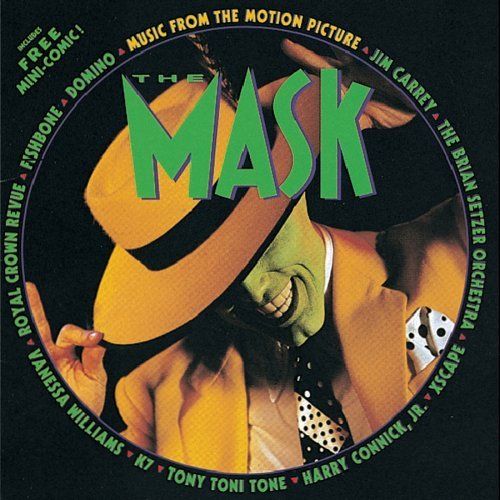
Regardless of why so many great comic books have been denied the opportunity to grace the silver screen, it’s nice to have films like The Mask that prove that comic books outside of the standard superhero genre can become excellent films. And hopefully, Hollywood will decide to start making them again. Besides, who knows? Maybe Carrey will be tempted into doing a true The Mask sequel.
Andrew Hudson
ahudson@comicattack.net
@Hudsonian


